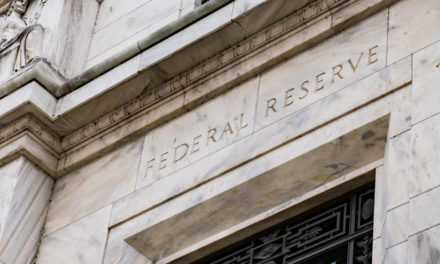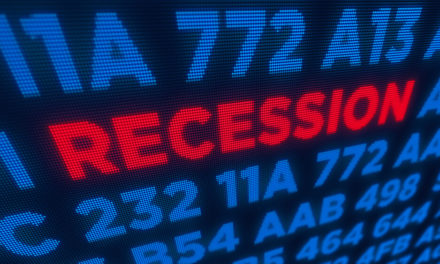JPMorgan’s economists see much slower second-quarter GDP growth, slashing their previous forecast of 2.25% to just 1%, far short of the first quarter’s surprisingly high 3.2%.
“The April durable goods report was bad, particularly the details relating to capital goods orders and shipments. Coming on the heels of last week’s crummy April retail sales report, it suggests second quarter activity growth is sharply downshifting from the first quarter pace,” JPMorgan’s economists wrote in a note.
The economists also changed their view on the Fed, and they don’t expect its next major move to be an interest rate hike — and it’s more likely than ever to be a cut instead of a hike.
“We had previously expected the next move from the Fed would be a hike, albeit at the very end of our forecast horizon in late 2020,” they wrote. “We now see the risks of the next move as about evenly distributed between a hike and a cut. We still sense little appetite on the FOMC for an insurance ease to goose inflation, but we see rising odds of ‘your father’s rate cut’: one prompted by downside growth risks.”
The latest durable goods report as well as Thursday’s PPI manufacturing and services data was surprisingly weak, helping fuel the latest stock market selloff and buying of Treasurys, sending yields to lows not seen since 2017, reflecting concern about the economy.
The 10-year Treasury settled in at 2.32% on Friday after dipping to 2.29% on Thursday. The Fed funds futures market reflects expectations for a 0.25% cut this year, and another in 2020.
“Net, net, business investment in the future is sputtering at the start of the second quarter as uncertainty and geopolitical risks are a heavy anchor that appears to be a big drag on companies’ willingness to order up new equipment,” Chris Rupkey, MUFG Union Bank chief financial economist, told CNBC. “Business confidence is clearly lacking in the manufacturing sector of the economy.”
Corporate CFOs believe odds of a recession are increasing, and they canceled orders in March and ordered less equipment in April, according to surveys.
JPMorgan notes the Trump-China trade war is the key thing causing uncertainty, impacting business sentiment and slowing the global economy.




